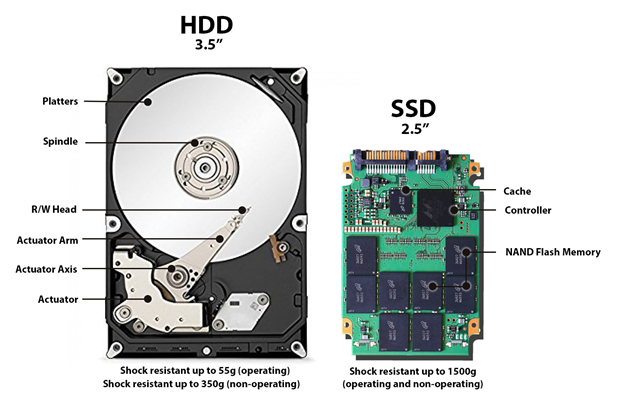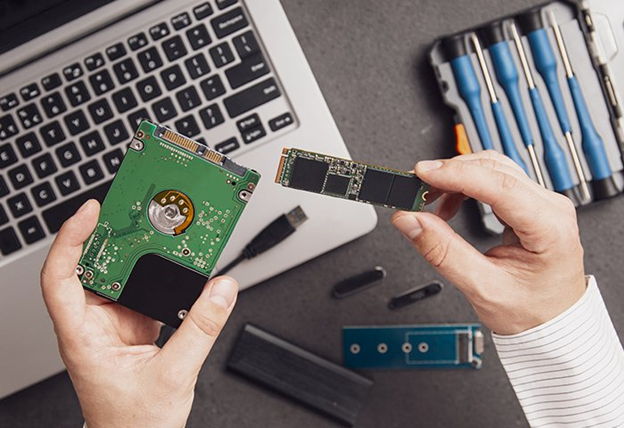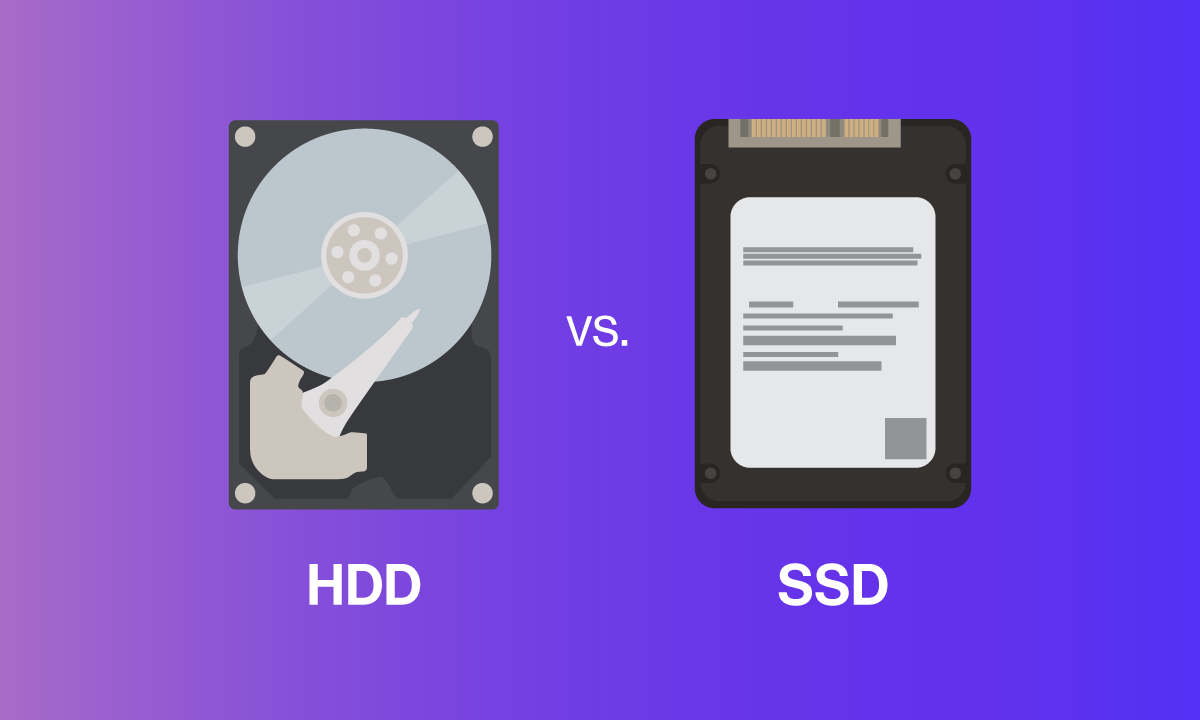The Choice Between Solid State Drives and Hard Drives for Computer Storage
Solid State Drives (SSD) and Hard Drive Disks (HDD) are the two most common computer components you need to think about when upgrading your computer. Choosing between a traditional HDD and a faster SSD can dramatically change your gaming or working experience, but which one should you decide on?
SSD vs HDD: What’s the difference between those two parts?
The main difference is how data is accessed and stored. SSD is a newer, faster storage device and can store data on fast-accessible memory chips. The HDD is a traditional storage part, and it accesses data by using mechanical platters and a moving head.
The basic purpose of an SSD and HDD are the same, these storage devices save your memories, music, documents, and applications. But the technology behind them is very different:
- SSD: store in flash memory; consists of individual memory cells, instantly accessible by the controller.
- HDD: a series of platters covered by a ferromagnetic coating; data is read and written by a head; it is mechanical compared to other parts in a computer; relatively slower and more susceptible to damage.

Now let's look at some comparisons based on reliability, capacity & price, and noise & heat.
Reliability:
SSD: has no moving parts, and uses flash memory which provides better performance and reliability over an HDD.
HDD: has moving parts and magnetic platters, the more it's used the quicker it wears down and fails.
Overall: they both are very reliable computer parts among whole system, most manufacturers provide a 3–5-year warranty, although most of HDDs and SSDs can last longer than 7-8 years.
Capacity & Price:
SSD: the most popular SSD is among 500GB to 2TB, most SSD over 3TB is usually outside of the price range for most consumers.
HDD: most hard drives are in a reasonable price range and there are several terabyte (TB) choices on HDD. There are some overlap capacity to the SSD, but high-cap HDD wins the comparison without any doubt based on pricing alone.
Noise & Heat:
SSD: no moving parts, no noise at all. SSD generates less heat because there are no moving parts in it, helping to increase the lifespan and stability.
HDD: spinning platters and moving heads will make some noises, but you barely notice them while you are using computers since fans generate more noise. It generates very low-level heat since there are some moving parts inside, has slightly higher effect on potential damage due to wear and tear. Also, sometimes you will notice your hard drive making loud, consistent sound which can indicate a drive failure is imminent so you can take action to back it up before it dies.

Many customers these days can opt for a mixed system with HDD mass storage and an SSD boot drive for your Windows 10 install. You'll get a balance of price, performance, and space, and will have a well-rounded machine for all occasions.
If your storage requirements are smaller (you're not storing a ton of pictures and videos on your computer), an all-SSD system is the way to go.
If you can have an NVMe drive in your PC, then these will yield the best performance, the price is fairly reasonable in the current market.
Recommendations Based on Bestselling SSD and HDD
Samsung 980 series
https://www.sabrepc.com/MZ-V8V500B-AM-Samsung-S3647438
Samsung 980 Pro series
https://www.sabrepc.com/MZ-V8P500B-AM-Samsung-S3085675
Crucial P5 Plus
https://www.sabrepc.com/CT500P5PSSD8-Crucial-S4602797
Crucial MX300
https://www.sabrepc.com/CT1050MX300SSD1-Crucial-S314091
Deciding on the right storage medium is easier once you know what you want to do with your system. If you have any questions about SSD or HDD computer storage, feel free to contact us.


